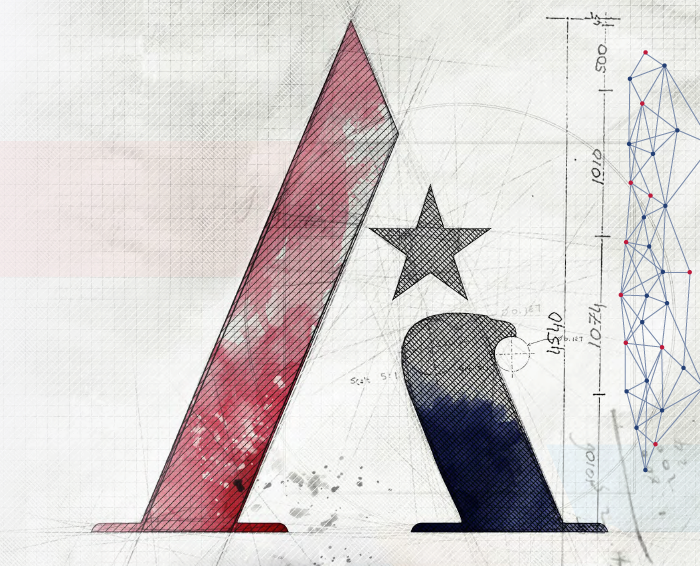AI and the future of manufacturing
Lynn Shea
Sep 30, 2021

Source: NSCAI
A panel of manufacturing experts discuss the critical role that artificial intelligence has in building economic strength and elevating national security.
Five leading experts from industry, government, and academia who understand the power and potential of artificial intelligence (AI) came together for a recent panel discussion held by Carnegie Mellon University in conjunction with the National Security Commission on Artificial Intelligence (NSCAI) and moderated by Gary Fedder, the director of the Manufacturing Futures Institute at CMU.
They shared meaningful insights, including what panelist Ira Moskowitz, Chief Executive Officer of the Department of Defense-sponsored Advanced Robotics for Manufacturing (ARM) Institute said were AI’s abilities to strengthen the U.S. economy, improve global competitiveness, elevate national security, support the reliability and robustness of our supply chain, and train and empower the manufacturing workforce.
“In order to compete globally, we must make AI, robotics, and autonomy more accessible to manufacturers large and small throughout the United States,” said Moskowitz who added that, “As a national consortium, the ARM Institute is working with its members to accelerate these technologies and address the workforce development upskilling needed to accomplish this goal.”
Panelist Elizabeth Holm, a CMU professor of materials science and engineering, explained that the domain of AI is the collection of the many units of knowledge and experience that we need to learn from. With AI, that multi-dimensional data, derived from many different sources, can identify trends in high dimensional spaces that humans don’t have the ability to envision. She said that AI research is the key to integrating our manufacturing knowledge to maintain agility, responsiveness, and the leading edge the U.S. current holds in AI technology.
“We need a workforce who can use these technologies effectively from the technician to the CEO, a culture shift to an AI and data driven workplace, and we need to support the insertion of these knowledge-based methods into more market sectors,” said Holm.
Jared Glover, a CMU alumnus and Chief Executive Officer of CapSen Robotics is applying AI to give robots 3D vision, motion planning and control skills for pick and place applications in factory and warehouse settings. He acknowledges that while there will be fewer people working in factories and warehouses in the future, that loss will be more than offset by jobs created in robotics. And because of AI, those jobs will not mean more software engineers.
According to Glover, “You don’t need a PhD to program robots – we need technicians. But we need to dramatically increase our investment in STEM education to ease the extremely high long term labor shortage we’re facing.”
Shailesh Patkar, another panelist and CMU alumnus, is the Director of Strategic Technology Planning & Commercialization for II-VI Incorporated. He explained that AI will drive a wide range of innovation, including how AI is driving semiconductor innovation that will contribute to improvements in autonomous transportation.
“There has been a large shift to devices based on wide bandgap materials such as silicon carbide and gallium arsenide that has begun to satisfy the power-hungry AI applications of the future such as augmented and virtual reality and electrification of battery-operated cars in particular.”
The Honorable Katharina McFarland, Chairman of the Board of Army Research and Development at the National Academies of Science who joined the discussion on behalf of NSCAI issued a warning as well as reassurance about AI.
“We’ve had an unfortunate narrative in the public where AI is akin to Terminator and Skynet, and that’s not the case. As humans we impose our value system upon how we program or act,” said McFarland.
We are stuck in an old manufacturing paradigm that we need to get out of in terms of the toolkit. There are tools that could upgrade our infrastructure if we invest in front-end research to advance the technology.
Katharina McFarland, Chairman of the Board, Army Research and Development at the National Academies of Science
She explained that AI is just a name for a technology that allows us to unburden ourselves as humans—like when we program our coffee maker to make coffee at 7:30 in the morning. Think of AI not as a threat but rather as a human surrogate with your value system implementing something you want done without having to do it yourself with a tool that can do it better and with more accuracy.
She says that our national security is tied to economic strength, and that we must think about AI through the lens of how it can improve our ability to maintain economic strength including what we need to manufacture in order to run and defend this country.
“We are stuck in an old manufacturing paradigm that we need to get out of in terms of the toolkit. There are tools that could upgrade our manufacturing infrastructure if we invest in front-end research to advance the technology.”
View the one-hour panel discussion online at https://vimeo.com/591046489.
